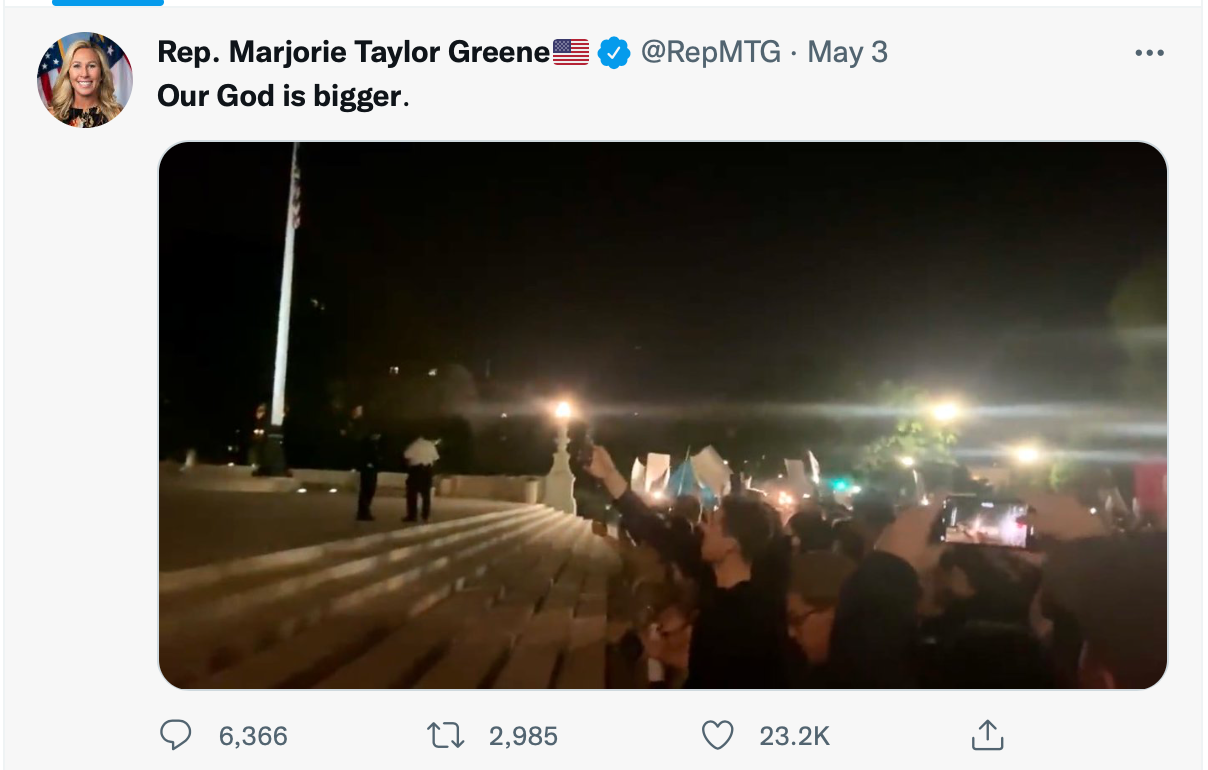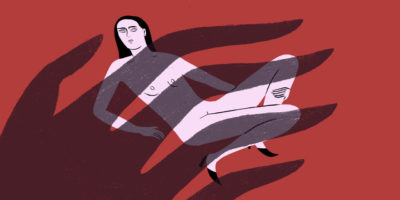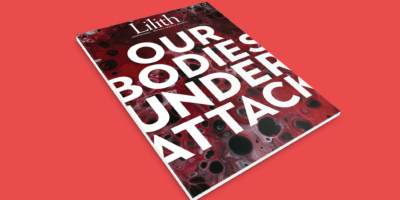
When They Act Like Their God Is Bigger
The day after the leaked Roe Supreme Court memo, Congresswoman Marjorie Taylor Greene tweeted this inane claim: “Our God is bigger.” Strangely, I had actually been thinking over the previous few days just how tiny the God of her warped orthodoxy is.
Over and over we see those who seek to rob people of our liberty and our joy claim to speak with the authority of the divine, all while diminishing the holiness of creation itself.
When it comes to the decisions of our government, neither my nor Greene’s beliefs about a higher being matter. We do not live in a theocracy. Still, it is hard to ignore how readily certain people twist the authority of their deity to cosign whatever hateful, selfish agenda is their cause of the day (and make no mistake, they’re all linked).
Driving my daughter to Hebrew School, I was listening to a podcast on which Father Richard Rohr shared nug- gets of wisdom of a life well lived that, despite being rooted in his Catholicism, spoke deeply to my Judaism. When he spoke of people trying to fit God into a box, it felt revelatory.
Too many try to squeeze God into their narrow-minded understanding of the world, instead of opening up our understanding of God to encompass all of the beauty, joy, and power around us. Frequently, my daughter has shared with me her understanding that God is nature and everything and all around. So that day, she and I spoke of the Edenic creation story, and the ways it’s used to justify people’s ignorance and hate.
We talked about how silly it is that people take the seven days of creation literally, believing a day in the creation story is exactly a day in our human lives. I can imagine that my day and God’s day, in infinity, are not the same, and yet find no less sanctity in Shabbat. We talked about the human hubris to believe that being made in God’s image means that God must have some human form, when we can so clearly see our veins in the root systems of trees, the galaxies in our neural networks.
Why have we tried to shrink God to fit us, when we could deepen our divinity by recognizing how connected we are to all people and things? Certainly, our late arrival in the creation story, our charge of stewardship, and our capacity for reasoning would indicate that the image was much more than skin deep.
In Father Rohr’s view, one of the deepest follies of humans, in particular many of his fellow Christians, is that of certitude. He speaks of using faith as a cudgel, in a way, that to say one has faith means to say “I’m right.”
“Our God is bigger” has nothing to do with actual religion, but about using religion to dominate.
I do think we can embrace a God that is bigger, though. Not bigger as in more powerful. Bigger as in more possible, more open, more loving, more connected. While I was preparing for my conversion to Juda- ism, my husband and I had been married over three years, and I’d been practicing Judaism (attending services, fasting, keep- ing kosher, keeping Shabbat) for most of that time. I wondered, aloud, that I felt very committed to Judaism, that the values felt very resonant, but that there was one issue. I still wasn’t sure about this God thing. He laughed and told me that I was in good company among my fellow Jews.
I no longer feel this way, because I no longer keep God in a box. I see God in the trees, in the sky, in my daughter, my students, the wisdom of others, the incredible bravery of people fighting for the world we deserve. I had to let go of the box to find God, precisely because I had been raised in that tradition, in which God is personified, and molded into a transactional figure that grants forgiveness for hitting your brother if you say three Hail Marys.
The congregation I grew up in is led by a kind and justice-focused monsignor who still asks how my father is every time I see him. My husband and I coach basketball there and, in that same gym, the church has food pantries and a free medical clinic. Still, my sixth-grade religion teacher told me, weeks after the 1994 Brookline clinic murders, about 40 minutes from my home, that if someone is told by a doctor that they and their fetus would both die if they carried a pregnancy to term, “you just have to have faith in God.” As though God did not put you on this earth with a doctor. And while my parents nurtured my ability to ask questions and challenge my faith, they could not make a big enough box for mine.
I often tell people that I left the Catholic Church because of its stance on women’s self-determination. I don’t mean only abortion. When I was 22, I had the great privilege to bear witness to the wedding of my grandmother and grandfather, who had been married over 30 years–but not in the eyes of the Church. Because my abusive biological grandfather and my grandmother had been divorced, the church would not permit her marriage “in the eyes of God,” though apparently her staying with a man that beat her would have been acceptable. Those who put God in a box to wield as a weapon can be found in many, many religions. And they are all wrong.
A relationship with God, for me, highlights the smallness of myself and the enormity of my connectedness to all other life. I believe that every life is precious and that life begins at breath. I believe no one has a right to tell anyone how to feel about their own body’s potential to grow a human life. My pregnancy and the birth of my daughter, faith affirming experiences, made me even more committed to reproductive justice.
Cara Berg Powers uses education, arts, and culture to help people reimagine and reshape the world, most recently at the Transformative Culture Project and Clark University.



